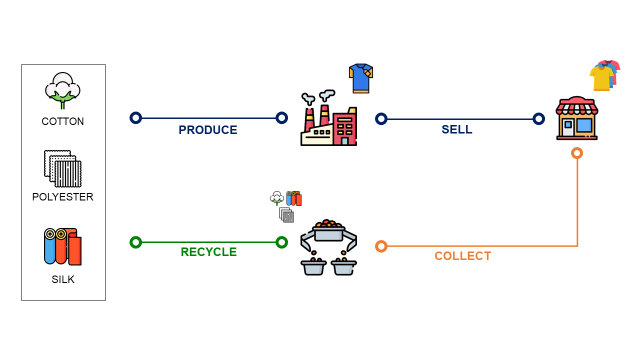Actionable data science tips to overcome operational challenges in transitioning to a circular economy include estimating the environmental impact of current linear models, automating life cycle assessment using data analytics, implementing sustainable sourcing and supply chain optimization, addressing the opacity of supply chain networks, streamlining reverse logistics operations, optimizing material efficiency through linear programming, and optimizing supply chain networks. Data analytics can play a crucial role in addressing these challenges and supporting the implementation of a sustainable and profitable circular model.

Actionable Data Science Tips to Overcome Operational Challenges in Transitioning to a Circular Economy
Introduction
A circular economy is an economic system where waste is minimized and resources are continuously reused or recycled. Transitioning to a circular economy presents operational challenges for many companies. In this article, we will explore practical data science tips to overcome these challenges and support the transition.
Transition to a Circular Economy
Before implementing a circular economy, it is important to estimate the environmental impact of our current linear model. For example, we can assess the environmental impact of a T-shirt throughout its life cycle. This assessment can be automated using business intelligence solutions implemented by analytics teams. By collecting and processing transactional data from different systems, we can create a central data warehouse that provides a comprehensive view of the T-shirt’s life cycle.
Overcoming the Operational Challenges
One major challenge in transitioning to a circular economy is the opacity of supply chain networks. It is often difficult to track the origin and journey of goods from raw materials to the final product. Data analytics can address this challenge by connecting to systems that track products along the value chain and gathering data with timestamps. This data can be stored and processed to create a central source of information that enables traceability and facilitates the transition to a circular economy.
Another challenge is the low residual value of used products. In our existing linear economy, products are designed for consumption and disposal, making it expensive to collect and recycle used products. Data analytics can streamline reverse logistics operations and design alternative business models, such as subscription models, to make recycling more profitable.
Material Efficiency & Recycled Materials Usage
Efficient use of materials is crucial in a circular economy. Data analytics can help optimize material usage by using linear programming to find the best mix of materials that meet profitability and sustainability goals. Additionally, supply chain network optimization can minimize the cost impacts of collecting, sorting, and recycling used items.
Conclusion
Data science can be a powerful enabler in the transition towards a profitable circular economy. By leveraging data analytics, companies can overcome operational challenges, optimize resources, and redefine their way of work. Implementing AI solutions, such as the AI Sales Bot from itinai.com, can further enhance customer engagement and drive business outcomes. To learn more about AI solutions and how they can benefit your company, connect with us at hello@itinai.com.
List of Useful Links:
- AI Lab in Telegram @aiscrumbot – free consultation
- How Will Data Science Accelerate the Circular Economy?
- Towards Data Science – Medium
- Twitter – @itinaicom



























